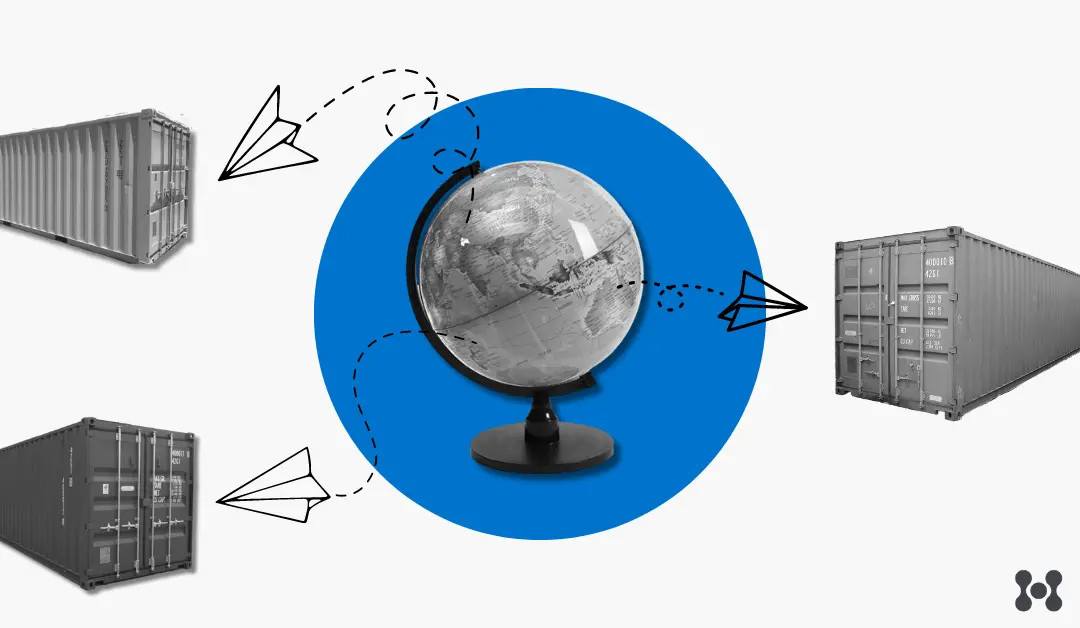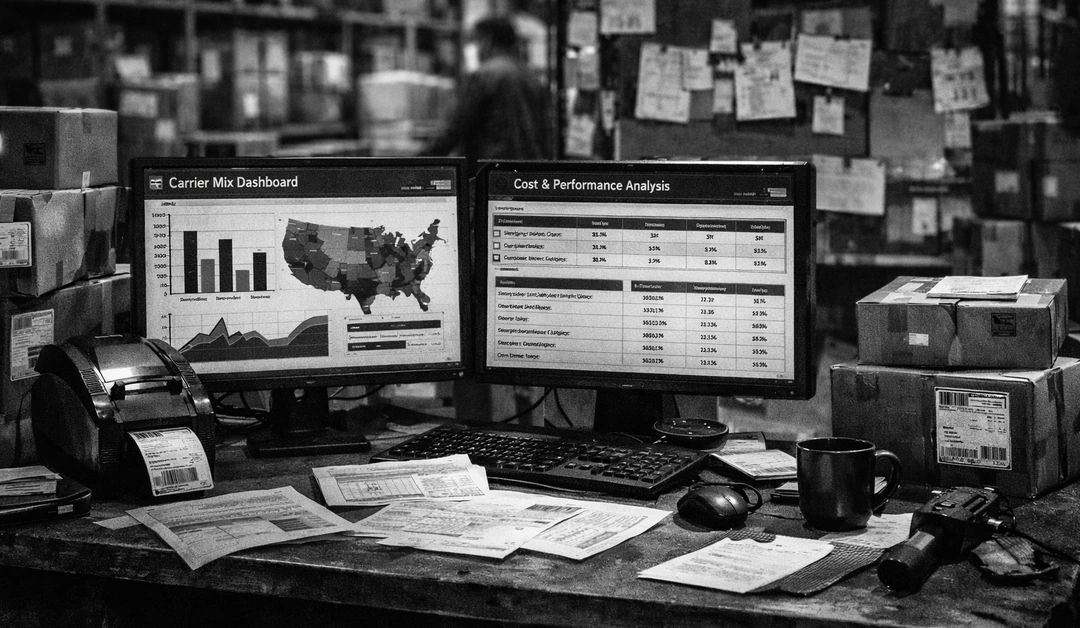Types of Freight: What are They?
Freight transport refers to moving goods, merchandise, or cargo from one location to another for commercial purposes. Thus, various types of freight, such as air, sea, road (trucks), and rail, can transport freight.
Why Is Freight Important?
Freight transit plays a vital role in trade and the supply chain. Companies depend on freight services to move their products. This includes transit from manufacturing plants to distribution centers, retail stores, or end consumers. Also, freight services aid global trade.
Freight includes the physical goods that move from one place to another. Further, this represents a vital part of eCommerce and global economic activities.
Types of Freight
There are several types of freight based on various criteria. We’ll take an in-depth look at these below.
Mode of Transportation
There are four modes of freight transportation.
• Air
• Sea
• Road
• Rail
First, Air refers to goods transported by aircraft. This is often used for high-value or time-sensitive items. Second, Sea Freight involves goods transported by ships. This is commonly used for large amounts of goods or bulky items. Next, Road Freight is also known as trucking. Trucks are used for shorter distances or areas not accessible by other modes. Finally, Rail Freight uses trains for cargo transportation. It is commonly used for long-distance and heavy cargo.
Nature of Freight
There are four types of goods classification.
• Dry
• Refrigerated
• Hazardous
• Oversized
First, Dry Freight involves non-perishable goods that do not require temperature-controlled transport. For example, this includes clothing, electronics, and furniture. Second, Refrigerated Freight is also called “Reefer.” This means perishable goods that need temperature-controlled transportation. For example, goods like fruits, vegetables, pharmaceuticals, and certain chemicals. Next is Hazardous Freight. Involved in this category are goods that are classified as hazardous materials. Special attention to this category is given due to the potential to cause harm. This refers to flammable, toxic, explosive, or radioactive items.
Finally, Oversized or Overweight Freight is cargo that exceeds standard size or weight limits. It requires special handling or permits.
Packaging Type
There are two packing types.
• Bulk Freight
• Containerized Freight
Bulk Freight refers to unpackaged cargo. So, it is often transported in large amounts. For example, this could mean grains, coal, or liquids. Alternatively, Containerized Freight refers to goods packed into standardized containers. Thus, this facilitates easy handling and transfer between different modes of transportation.
Purpose of Freight
The purpose can be commercial or personal. Commercial Freight refers to goods transported for business purposes. For example, this means raw materials, finished products, or retail shipments. So, personal or Household goods involve cargo related to individuals’ personal belongings.
Specialized Freight
There are exceptional freight cases. This often applies to livestock or project freight. Livestock means toting animals. The movement of live animals requires special care and attention. Alternatively, specialized freight might require particular logistics. Thus, these logistics needs fall into Project Freight. This means cargo that requires specific logistics for complex and unique shipments, such as heavy machinery or construction equipment.
Global Trade
Global trade has two types: imports and exports. Import Freight means goods are entering a country from abroad. Alternatively, Export Freight means goods leave a country to be sent abroad.
These are some of the common types of freight categories. Freight transportation plays a crucial role in global trade and supply chain management. The choice of freight type depends on factors like the nature of goods, distance, cost, urgency, and logistical concerns.

Carriers and Their Freight Specialties
Numerous carriers and logistics companies work with freight to transport goods across different modes. These carriers specialize in specific modes of transport. Also, some may offer multimodal services. This involves a combination of air, sea, road, or rail freight. Here are some of the main types of carriers that work with freight.
Air Freight Carriers
• First, air freight carriers use planes to transport packages. These companies transport cargo by air using cargo planes. For example, FedEx Express, UPS Airlines, DHL Aviation, and Cargolux.
Ocean Freight Carriers
• Next, there are ocean freight carriers. Further, these carriers transport goods by sea using container ships or bulk carriers. Specifically, major ocean freight carriers include Maersk Line, Mediterranean Shipping Company (MSC), CMA CGM, and Evergreen Line.
Trucking Companies
• These carriers move freight overland using trucks or other road vehicles. For example, UPS Freight, FedEx Freight, XPO Logistics, and Schneider National.
Rail Freight Companies
• Also, rail carriers transport goods by train. They are used for long-distance and heavy cargo. Rail freight companies include Union Pacific, BNSF Railway, CSX Transportation, and Canadian National Railway.
Freight Forwarders
• Freight forwarders are companies that aid the shipment of goods on behalf of shippers. Further, they may work with various carriers and handle the logistics and documentation. For example, Kuehne + Nagel, DHL Global Forwarding, Expeditors International, and DB Schenker.
NVOCCs (Non-Vessel Operating Common Carriers)
• NVOCCs are mediators that put smaller shipments into larger containers and work with ocean carriers to transport these consolidated shipments. For example, Flexport, Vanguard Logistics, and Kintetsu World Express.
Intermodal Carriers
• These carriers offer multimodal transportation solutions. Further, they combine different modes like trucking, rail, and sea or air freight for efficient delivery. For example, Maersk Line’s intermodal services and JB Hunt’s intermodal division.
Courier Services
• Also, courier companies handle small parcels and packages. They provide express delivery services. Some major courier services are FedEx, UPS, DHL, and TNT Express.
Specialized Carriers
• Some carriers specialize in specific types of freight, such as refrigerated goods, oversized or heavy cargo, and livestock transport.
Conclusion
In conclusion, it’s vital to note that the freight industry is vast and constantly evolving. New carriers and logistics companies emerge often. Further, shippers choose carriers based on factors like the nature of the cargo, destination, cost, transit time, and reliability.





